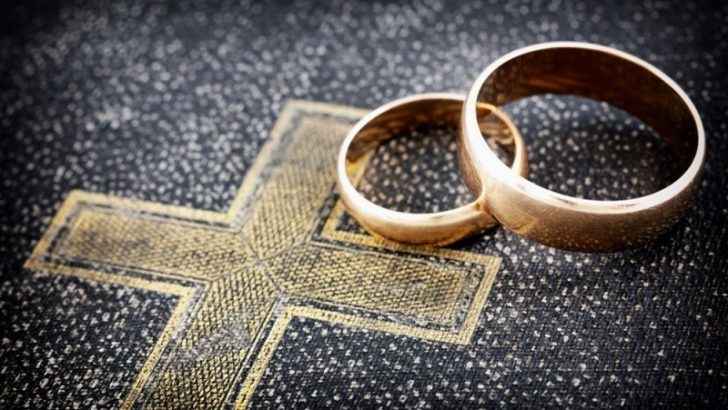In marriages with disparity of cult the Church insists that the Catholic spouse has a particular task
In many countries the situation of a mixed marriage (marriage between a Catholic and a baptised non-Catholic) often arises.
It requires particular attention on the part of couples and their pastors, the Catechism of the Catholic Church states. A case of marriage with disparity of cult (between a Catholic and a non-baptised person) requires even greater circumspection, the key teaching document adds.
“Difference of confession between the spouses does not constitute an insurmountable obstacle for marriage, when they succeed in placing in common what they have received from their respective communities, and learn from each other the way in which each lives in fidelity to Christ. But the difficulties of mixed marriages must not be underestimated,” the Catechism warns.
“They arise from the fact that the separation of Christians has not yet been overcome. The spouses risk experiencing the tragedy of Christian disunity even in the heart of their own home.
Differences
“Disparity of cult can further aggravate these difficulties. Differences about faith and the very notion of marriage, but also different religious mentalities, can become sources of tension in marriage, especially as regards the education of children. The temptation to religious indifference can then arise,” the document states.
In the case of disparity of cult, the Church teaches that an express dispensation from this impediment is required for the validity of the marriage.
“This permission or dispensation presupposes that both parties know and do not exclude the essential ends and properties of marriage; and furthermore that the Catholic party confirms the obligations, which have been made known to the non-Catholic party, of preserving his or her own faith and ensuring the Baptism and education of the children in the Catholic Church,” the Catechism states.
Through ecumenical dialogue, the Catechism notes, Christian communities in many regions have been able to put into effect a common pastoral practice for mixed marriages.
“Its task is to help such couples live out their particular situation in the light of faith, overcome the tensions between the couple’s obligations to each other and towards their ecclesial communities, and encourage the flowering of what is common to them in faith and respect for what separates them,” the document states.
Consecrated
In marriages with disparity of cult, the Church insists that the Catholic spouse has a particular task: “For the unbelieving husband is consecrated through his wife, and the unbelieving wife is consecrated through her husband” (1 Cor 7:14).
“It is a great joy for the Christian spouse and for the Church if this ‘consecration’ should lead to the free conversion of the other spouse to the Christian faith. Sincere married love, the humble and patient practice of the family virtues, and perseverance in prayer can prepare the non-believing spouse to accept the grace of conversion,” the Catechism states.


 Cathal Barry
Cathal Barry
